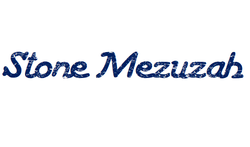Jewish people believe that God made an agreement with them that they should belong to each other. By reading the Torah, worshiping mezuzah and living by its laws, they honor their promise to God. The Torah contains rules about how Jews should live a moral life and conduct themselves in every way, while kosher mezuzah scrolls and cases add a distinctively Jewish moral and aesthetic presence to an already cultural and ethnically-diverse environment.
Mezuzah – the Holy Spirit: in simple words
Mezuzah is a piece of parchment often placed in a decorative case, engraved with specified Hebrew verses from the Torah. These verses include the Jewish prayer, ‘Shema Yisrael’, starting with the phrase: “Hear, O Israel, the Lord our God, the Lord is One.”
Apart from the bathroom in Jewish homes, the mezuzah is fixed to all the doorposts of every room to fulfill the mitzvah, to inscribe the words of the Shema on all the doorposts of your house.
The parchment is fabricated by a highly-skilled, qualified scribe who has undergone extensive years of meticulous training. The verses are inscribed in black, indelible ink with a special quill pen. After that, the parchment is rolled up and placed inside the case.
The rising demand for a kosher mezuzah scroll
As people experience the positive impact of the mezuzah in a Jewish home, people of other religions are also compelled to buy kosher mezuzah scrolls. It is hung on the door frame of any home. It’s a powerful reminder to all family members that we are marked with the blood of Jesus Christ.
When one leaves their home, it’s customary to place their hand on the mezuzah. Some put their third finger on Shin Daled Yud, written on the outside of the scroll, and then kiss their fingers.
It is believed that people should not touch the scroll unless it is in a case and shouldn't live in a house if one feels there is no kosher mezuzah.
The requirements of mezuzah
- All types of buildings are subject to the mitzvah of mezuzah, the exception being non-honorable edifies.
- Gates around cities and towns require a kosher mezuzah scroll at the entrance if the population comprises of Jews.
- A dwelling needs four walls to hang a mezuzah. However, the sukkah and rooms on a ship don’t require a mezuzah.
- A garage that is only utilized for cars doesn’t need a mezuzah.
- All inner rooms require a mezuzah on the doorway, even if there are no actual doors, as long as the doorway has a lintel and doorpost.
- The doorpost of an archway needs to be at least ten hand-breadths tall to place a mezuzah.
- Someone who rents a room must fix a mezuzah at their own expense and can’t remove it, even while leaving the house.
Due to the unfortunate occurrence of unscrupulous proprietors of mezuzah, one should carefully purchase kosher mezuzah scroll for sale from a reputable dealer only. Ensure it is 100% authentic and is written accurately.

